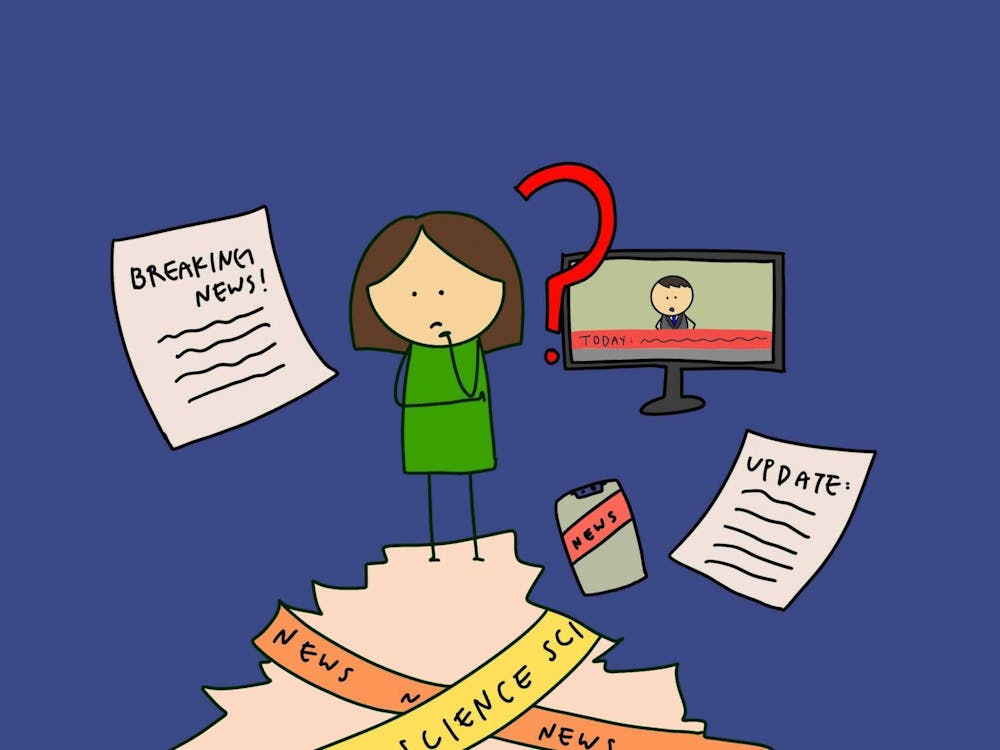
Among all the changes to our lifestyle recently, one of the more subtle ones is that many of us are reading the science portion of the news a lot more. PhDs in biology, virology and immunology have amassed thousands of followers on Twitter. Scientists have made headlines over tweets, interviews and press conferences — an ability previously reserved by singers, actors, politicians and other influencers.
As we try to make sense of the biology headlines and jargon that have been circulating in the past year, there are four things that we should keep in mind while reading articles that have to do with the dreaded virus. Let us begin, shall we?
1. Read beyond the headlines
If you would like to obtain legitimate information from the news, do not just read the headline. By nature, a headline has to make the story sound groundbreaking whether or not the story actually is. For example, the headline “New California Variant Devastates Los Angeles” is 100% more sellable than one that is much closer to the actual situation: “There seems to be a new variant in California, but viruses mutate all the time so this variant may or may not be of concern.” You have probably seen headlines similar to the first one. Second one, not so much. This example isn’t to say that variants aren’t concerning, just don’t base all your concern over one dramatized headline you saw scrolling through Facebook.
2. Be wary of preprints
During the day and age of COVID-19, more news outlets seem to be publishing stories on preprints, which are first drafts of research papers that have not been peer reviewed. While many of these news outlets seem to push these research studies as fact, we should not be confident in these findings because they are just first drafts. Read the article, but no matter how convincing the outlet makes it out to be, take it with a grain of salt. The results described in preprints may hold true after review, or they may not — only further investigation will tell.
3. Listen to multiple voices
As children, most of us are taught that all science is all about facts, numbers and precision. But this is not how the scientific process works. Sure, there are some things that we can consider fact because they have been repeatedly proven over many decades, but COVID-19, which is less than two years old, is not one of those things.
Scientists have different theories and predictions about transmission and future behaviors of the virus. To get the best idea of the current state and future projections for the pandemic, read articles, stories and Twitter threads from multiple scientists. Don’t put one person’s opinions or theories on a pedestal, especially when trying to answer the question that alludes us all: When will we get back to normal? Nobody knows for sure, but you can form more realistic expectations by reading multiple scientific and medical opinions. Of course, all of these people may end up being wrong, but their opinions are the best way to guess.
4. Take in some positive news
Things have been quite bad for the past year in the United States. While many of us were optimistic last spring and summer, we’re slowly becoming more cynical, scoffing at any positive predictions we come across. Don’t be that person.
Yes, some of the negative forecasts did come true, but remember when many of us thought that a vaccine would take years to develop and distribute? Or when we thought that the first round of vaccines would be only around 50% effective? Or when we thought that we would have a twin-demic when flu season began? Bad things have happened, but not every bad thing that is within the realm of possibility has or will happen. Welcome positive news and predictions while you read negative forecasts. Be realistic, but also be hopeful, and don’t be afraid to accept some happier news.
Overall, scientific journalism during a pandemic is informative, but it is most informative when you don’t accept everything you read at face value. Don’t be weighed down by cynicism and keep your mask on a little longer so eventually, we can laugh about what we did during quarantine at house parties.

















